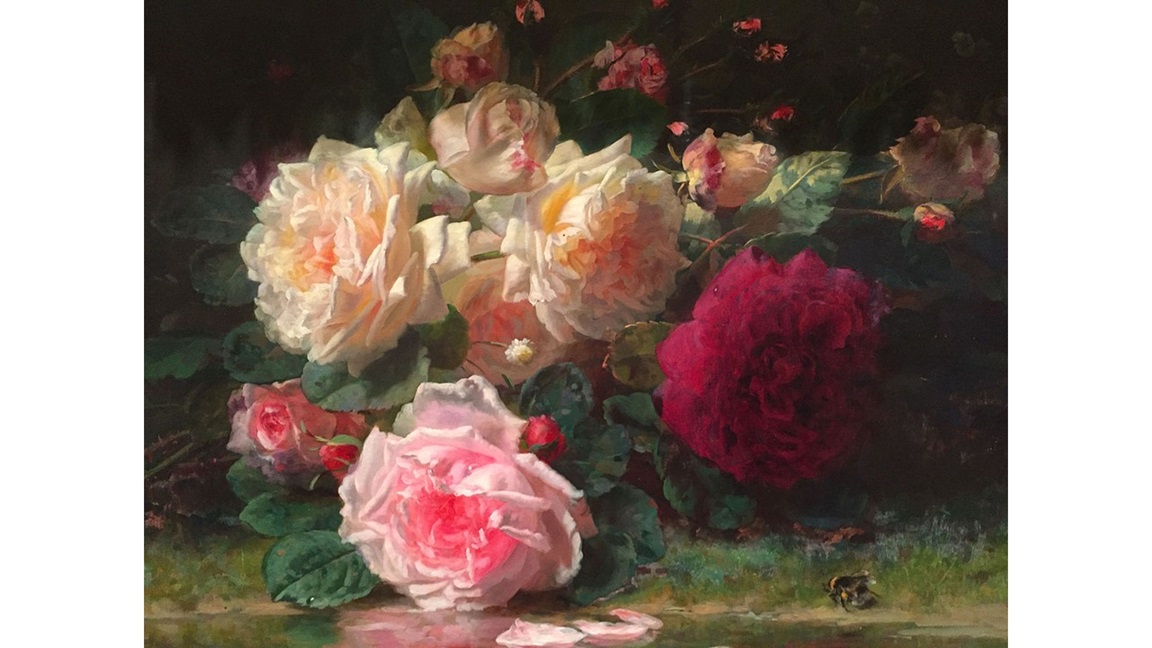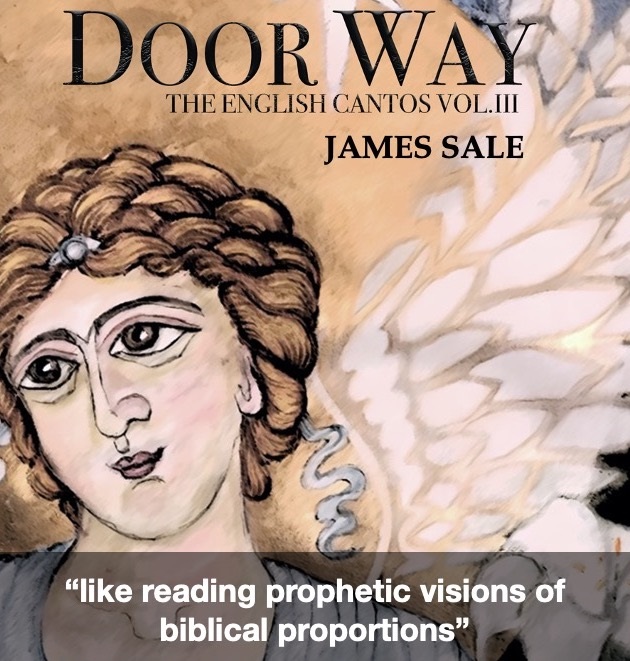.
The Straight-Fishing, Straight-Talking Jiang Ziya
Far off in time and place but still on this small globe,
By a river with his beard and stick and robe,
A sage thought on a kingdom’s end that war might loot
And by the river swung an unbent hook to probe.
For what? At first the passers-by thought he was cute,
His forehead ridged with plough-lines but no official fruit,
His heart beat warmly though his mind moved blank as ice.
They said, “You’ll catch no fish with such a daft pursuit!”
“There are bigger fish than those we serve with rice.
There’re dukes and kings,” he smiled. They called him “fool but nice.”
Words swam into the Zhou king’s ears. “Have him come here,”
He said and looked at maps of war like throws of dice.
A messenger made tracks to make the sage adhere.
“I cannot go,” the old man said, “my task is clear.”
His confidence in destiny was ocean deep.
One day King Wen, the Zhou king, hunting, passed quite near.
He stopped to talk although their ranks’ divide was steep.
Discussing strategies and principles to keep.
The King, knew he had found a minister for Zhou,
Who’d guide them on to glory they were meant to reap.
We cannot know how far we’ve come, how far to go,
Or how much goodness that we hooked drags bad in tow.
We may feel slow, trip up, stumble, vaguely plod,
Or drown in ignorance so dire we never know.
But what we catch with human understanding’s rod
Is bait and glimmer from The Saving Hand of God
And these can lead us to a vast eternal plane
Where, with vigilance and virtue, we’ll remain.
.
.
Damian Robin is a writer and editor living in the United Kingdom.

















A lovely story, and a fascinating rhyme scheme!
Thank you Cynthia. It’s in “The Thousand Character Classic”.
Oh, the rhyme is sometimes called a rubaiyat after the Rubáiyát of Omar Khayyám a title given by its most famous translator Edward FitzGerald.
Although there were no linkings of the third lines with the next stanza in that original, Robert Frost did do that in ‘Stopping by Woods on a Snowy Evening’
A tale well told, Damian. My favorite expression is from the appended lesson: “ignorance so dire we never know.” I am confident that God offers sufficient “bait and glimmer” that we need not drown in such ignorance if we must make use of “human understanding’s rod,” but we need to take action. It is true that human understanding cannot fully judge self and consequences of our actions. Interesting that you present both God and sage as fishermen! We imitate Him, and perhaps serve king and country by doing so.
Thank you Margaret for the kind comments and the positive way you bring out Christian elements of the poem.
You notice, Damian, that I do not attribute to you or your poem the doctrine of grace sufficient for salvation being available to everyone. You allow space for the idea, but your next-to-last stanza on ignorance appears to leave open, as well, the possibility of invincible ignorance that could be blameworthy and undeserving. Then the final two lines imply that even the virtuous and vigilant might fall from their exalted condition on the vast eternal plane. However, that would make it not eternal for some, and they may be ignorant of their desperate state.
Those last two lines (the vast eternal plane) seem to refer to whatever is achieved in the meta-religion of Falun Dafa, where practitioners may be religious or not. This is simply a partly educated guess, as I know only the most basic document, where Buddhism and Taoism are praised without being inculcated.
Anyway, your treatment of ignorance here seems to differ from that of heretical error (in which people are saved by their ignorance) or of genuine Christian mysticism, such as taught by the medieval English author of The Cloud of Unknowing. To him, a sacred ignorance is inescapable at the highest levels of prayer, because the mysteries of God cannot be fully comprehended by a mere human creature. You seem to be speaking rather of human ignorance about how good and evil consequences arise from living in a fallen world, and being unable to foresee the complexities of future events.
Thank you again, Margaret. What a tremendous facility you have for clarifying the core content of poems on the SCP site.
You pull out like gossamer, here, the subtleties of the final two stanzas with concepts that I have not come across before. You must have a deep reading of theology and other forms of spiritual investigation.
My prose gloss on the poem comes from my mundane understanding of Zhuan Falun, (Turning the Law Wheel), the chief teaching of the founder of Falun Gong (Law Wheel Gong) also called Falun Dafa (Law Wheel Great Law).
I would say that, being on Earth, we lack senses that are able to accurately place ourselves in the context of the universe or cosmos. We must try to return to our true selves that were born in the universe or cosmos.
We do this mainly through giving up attachments – desires and hooks that keep us in the material realm.
Through disciplined dedication we may change our physical bodies to become ‘one with’ the universe or cosmos and so move beyond this human state of existence.
But we may never know what we have achieved, nor the hight that can be achieved even after we have ‘got it’.
I hope that helps clarify some of the background thought that I tried to shape into the last two stanzas that you have so valiantly opened in prose.
What I have put here and in the poem are only my understandings and I hope they are close to those exemplified in Zhuan Falun (Turning the Law Wheel).
Thanks again for using your incredibly astute mind on my simple verse.
Damian, simplicity (like that of Jiang Ziya) can be profound. Your verse deserves attention to its depths, and I very much appreciate your further explanation of your intent. It gives me greater personal insight into Falun Dafa. I use that term because the Chinese woman practitioner with whom I have talked prefers it. I see her rarely, and her English is halting, so we don’t make much progress in conversation. Thanks for your input!
Unbelievable!
I trust you mean that in a positive sense, Lushan. If so, thank you !
The interlocking rhyme scheme in these quatrains is well done, and unforced.
The sage will not come to the king. The king must come to the sage. To me this seems to suggest that power must have the humility to approach wisdom for help, and not arrogantly assume that wisdom is at power’s beck and call.
Thank you, Joe. Your comments on the verse are reassuring.
I think you are right about power needing to respect wisdom. The old Chinese emperors and the European monarchs were meant to have a mandate from Heaven. In this mandate was the necessity to rule for the people and country.
There seems to be a whole philosophy of fishing unfolding, a welcome change from all the martial arts flying around. And impeccable rhyming, meter and rhyme scheme.
Much to think about. Thanks for the read, Damien.
Thanks for letting me know the good fallout from your reading, Paul — both metrical and philosophical.